Esteban Bullrich served as a senator for Buenos Aires Province until December 9, 2021, when he stepped down after being diagnosed with ALS (amyotrophic lateral sclerosis). In announcing his decision, the 52-year-old said he would dedicate the rest of his life to his family and to raising awareness of ALS and funds for treatment.
Bullrich, a former education minister in the Mauricio Macri government, reveals how spirituality gave him the strength not to yield to anger and how he continues discovering every day “why God placed this in front” of him. He assures that his illness has a cure but it just has to be found and insists that he still has not retired from politics.
How did you begin to realise that something in your body was not working as always, that it was different and breaking down? And how can people detect that they have ALS as soon as possible?
I can talk because it happened to me. I was in a Zoom [videoconference] session and suddenly my tongue was tied and I did not know why. I did not attach any importance to it but it remained stuck in my head that something was not normal. As time went by, it began to happen more often, so I began the path of doctors and tests until I travelled to the United States and confirmed the diagnosis. ALS is complicated to diagnose because there is no indicator which emerges from an analysis to confirm the illness, so it always takes a long time.
There is a very tough component of this illness regarding bodily functions – while the vital functions remain intact, the motor functions do not respond, at least seen from outside, which is very frustrating and drives some to despair. How did you learn to cope with that?
The way I found was to focus on the things I could do at any given moment. At first they were telling me to be prepared for having to use a wheelchair. Which was true, now I do have to use it but at that point I didn’t. I remember thinking that I still felt good and that I could move and that I wasn’t going to think about what I wasn’t going to be able to do in the future nor in the present either. I have always decided to pay attention to and be grateful for everything I am still able to do, despite the passage of time. Now I’m playing chess a lot – whenever you like, I’ll take you on and beat you!
Stephen Hawking said about his suffering of ALS: “Although there was a cloud over my future, I discovered to my surprise that I was enjoying life in the present, more than I had done before.” Do you feel yourself reflected by that phrase of Stephen Hawking?
One hundred percent. It’s impressive how you become ultra-perceptive of daily things which previously passed you by completely, a hug, the joy of a child, a dip in the pool, walking a few metres or a chuckle with friends. When the future is uncertain, all you have is the present. In reality it’s like that for everybody but we don’t realise until something happens to us.
Hawking lived a long time with ALS. You have said that the doctors told you that your life expectancy was from two to five years. For example, Roberto Fontanarrosa, another ALS victim, was taken away very quickly. Do you think that like Hawking you could outlive the time span forecast by medicine and the doctors?
I don’t think of time spans, I entrust my future to God. He knows why He does things. Every day I wake up and have an entire day to do things. I live from day to day and I’m at peace and happy.
In Argentina the writer Ricardo Piglia also suffered ALS, as well as Fontanarrosa. Has it interested you to look more deeply into their experience of ALS?
It has and it does interest me to go more deeply into the treatments and medicines there are today and how to go about finding a cure. I always say that ALS has a cure and that it just has to be found – to that I’m dedicating a great part of my life.
Do you believe that everything in life has a cure and are you optimistic that all the ills afflicting human beings can be cured?
Mankind can find a solution to every problem faced but that has to be done by working collectively.
In an interview with Ernesto Tenenbaum and María O’Donnell you said that ALS medication is often used without having undergone all the test phases, as happened with the Covid-19 vaccines. Should all the vaccines and treatments for illnesses which drastically shorten life like ALS be approved faster?
Absolutely, we were talking about compassionate use. Once the medication has passed the phase which assures us that it is not toxic, we should have the freedom to decide if we want the treatment in its experimental phase, signing an informed consent releasing the labs and governments from all responsibility. Let us try that out.
In that same interview you said that you were also working with United States Congress representatives on a law for experimental medicines. Could you tell us how that law would be and what it would consist of?
We have tried to assimilate legislative criteria found in other countries. The spirit of that bill lies in giving priority to the will of the patient. Who’s the person battling for their life? It’s fundamental to have empathy with those who are going through a terminal situation, drained of hope. The bill requires the treatment to comply with certain requisites, very demanding, although without having to pass through all the phases of already approved treatments. Doctors and other professionals accompany the patients throughout the entire process, keeping them informed so that they give their consent with total awareness and absolute freedom. The success and the risk are fundamental factors. Not just any old experimental treatment can fit into the text of the bill.
Can technology improve the experience of this illness by, for example, developing devices for communication, as you mention, or for mobility?
Without doubt it can, indeed we are talking now thanks to this tablet which I can guide with my eyes. But fundamentally we need to accelerate the access to experimental treatment for those of us suffering this kind of illness.
What is left to you out of the 20 years of your life which you dedicated to politics?
I continue to dedicate time to it, I haven’t retired. Politics has given me many things – from the possibility of fulfilling my dream of being education minister to the honour of being senator for my province, passing through an infinity of experiences, shared achievements and learning curves. It also gave me friends with whom I remain in contact, aides with whom I have travelled down the same road and the certainty that we have an extraordinary country to knock into shape. I keep working and I will do everything in my power to keep looking for that dream to come true. You will see greater things than these, sayeth the Lord. Have faith.
You’ve spoken of politics as lacking humility, that the Cambiemos government lacked the humility to ask for help and the same thing is happening to President Alberto Fernández and that you learned this with this illness because it’s humiliating. Can you tell us your vision of humility and what’s missing in this government and the last?
It’s an exercise of placing yourself in second place, of dependence, of knowing yourself to be small, of understanding that we are nothing but a dot, that we’re not so important nor intelligent nor useful and that the people who love us do so knowing and accepting our defects and that the admiration is always partial, falling on a small dimension of ourselves. When we understand that, it’s impossible to be arrogant and that opens up to us a panorama much closer to the truth. We gain more and better things for ourselves but, above all for everybody else when we put ourselves in the place corresponding to us. Only failure comes out of omnipotent ambition.
You also said that you believed in Alberto Fernández, although you did not vote for him, believing that he could generate a dialogue of consensus in that sense. Now that over two years have gone by, what do you see happening between the president and his vice-president and what message would you send to each one of them?
That is the lack of humility. Their battle is to see who emerges the least hurt and who saves themselves. Meanwhile they are sinking us all. Humility requires great valour because you have to accept that you are vulnerable and that’s scary.
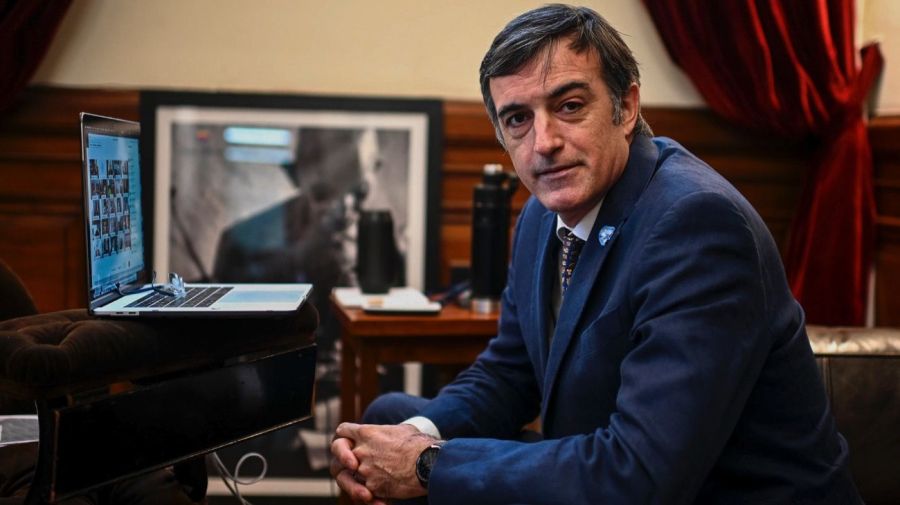
Are you hopeful of being able to breach today’s grieta chasm?
Absolutely, the grieta chasm is a decision, you just have to choose dialogue and not give battle. I decided to climb out of the mud and raise my head to listen to others, deciding for peace and unity.
Early last month you tweeted that despite the messages of support from government and opposition politicians in response to your appeal on the day you resigned your seat, nothing has happened but the situation has only got worse. We were clearly referring to breaching the chasm. What is your message today to the political class and what should be happening which is not happening?
I said it in that speech. If we push ahead with blinkers looking only at our own interests, we are going to end up destroying what we have in common, which is this country, its history, its culture and its people. I still trust in our being in time to realise.
A few days ago was the anniversary of the death of [late Transport minister] Mario Meoni, of whom you were a great friend. He was a minister of Alberto Fernández in a party opposed to yours who was killed in a car accident returning to his native city. How is it possible to make friends across party lines with this grieta?
Do you ask your friends which team they support? Those who think that the grieta chasm is moral are those who never sat down to talk with anybody who thinks differently. We all have different personal dimensions, agreeing in some things and disagreeing in others but affection is above all that, especially when essential values are shared. Politics is an accessory in a personal relationship.
Beautiful, Esteban. Now for something more concrete and pedestrian. How do you see Juntos por el Cambio in the face of next year’s elections?
We are at a difficult stage. We have to finish defining why we want to govern, for what aims and which values we are going to defend, as well as what we learned from our experience in government and on that basis understand what we can give this Argentina.
Who would you like to be the Juntos por el Cambio presidential candidate next year?
The person who best synthesises the definitions I have just mentioned.
So you’re still a politician, Esteban. Would it do politics and Juntos por el Cambio good if Mauricio Macri were to run again as a presidential candidate?
Mauricio does Argentine politics good and Juntos por el Cambio a lot of good. Whether he runs or not is already a personal decision. He’s an ex-president, on another level.
Although you defeated her in the 2017 elections, Cristina Fernández de Kirchner was very affectionate with you in your last appearances in the Senate. Do you think that she, like Macri, could contribute to reducing the grieta polarisation by taking a different attitude or possibly stepping aside?
One thing has nothing to do with the other. Cristina was very attentive to me from the time she knew about my illness. I do not see having disputed an election as any impediment to such consideration. As to stepping aside, Argentina’s problem is not names but approaches.
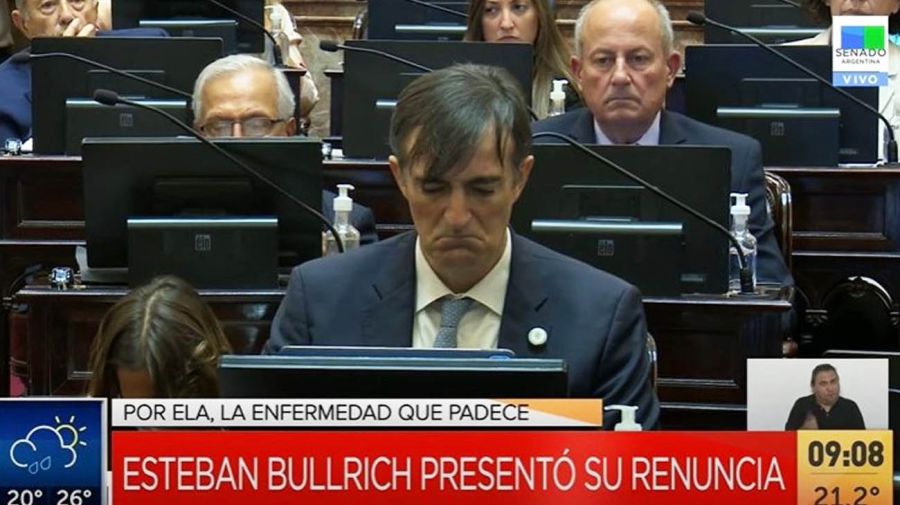
Talking about approaches, what do you think of Javier Milei’s discourse?
Argentina needs peace, we already have plenty of evidence that extreme visions do not produce results. Let’s try out peace, dialogue, comprehension and amiability, let’s innovate.
Did you like parliamentary life and do you miss it?
I miss many things but I do not make room for them. My only focus is on the things I love and can do. I have no time for nostalgia.
I’d like you to transmit a message to politicians in general and indirectly to society, via them.
I would repeat to politicians my December speech, like the village priest who repeats his sermon without changing anything. At the end of the day, why should I say anything different? It’s going to be hard, it’s going to be uncertain and it’s going to take a long time but a future is possible if we convince ourselves to go out and look for it, whatever the cost.
Do you have or have you sought any type of psychological aid during this time?
I did have and between the pandemic and my difficulties talking, I dropped it. Now I hear Mass daily, pray and meditate, do my physical therapy and try to laugh a lot, always surrounded by much love from my family and friends.
You are a very Catholic person, a true believer. What happened when you found out about the illness? Could you come to be angry with God at any point?
I was annoyed with everything. I asked God: “Why, why this, why now, why me?” I was furious. I thought of everything which I was going to lose. But I came out of that annoyance pretty fast. What cost me the most was to overcome the enormous anguish. Until I suddenly clicked and understood that God was placing this before me for me to do something with it and I became obsessed with finding out what. I’m still discovering but I’m advancing.
Your religiosity was always intense, did it increase with the illness?
I don’t know about the religiosity but I’m sure the spirituality did. I suppose that was because of the base I had but also when you see that the physical is absolutely secondary to the spiritual in terms of enjoying life, as happens with this illness. You don’t waste time.
Do you believe in an afterlife?
Luckily, yes.
What has changed now in your relationship with time, are you aware of how close the finite is?
It has me in focus. I cannot lose myself in distractions, I have no time.
In that sense you have organised a foundation, the Fundación Esteban Bullrich, to help others. Is helping others also a form of self-help, does it do you good and is it therapeutic doing good?
When you help, you receive far more than you give but that was never the objective. We organised the foundation because we saw that there was a great deal to contribute from our side worldwide regarding ALS so we went for it.
I’m asking a man who was the education minister, has undergoing ALS made you reflect about any kind of knowledge which is neither philosophical nor rational but should also be taught in schools?
I don’t know about schools but I am clearer than ever as to a spiritual dimension to which we must dedicate far more time and an enormous effort and awareness in order to get our priorities right. Luckily the kids today are much clearer about that than we are.
Would you advise your children to stay and live in the Argentina of these times in which many youngsters are thinking of emigrating?
Obviously, I love this country and I’ve worked to improve it and they know that and love it too. Afterwards they will do what they want and what they can but I do not believe that what needs to be done in Argentina is to leave.
You have said: “I know that God never gives you a battle you cannot fight.” I’d like you to share and explain that phrase to non-believers.
God knows why He does things and although we do not understand why what happens happens, He always takes care not to ask any more of us than we can give. Understanding that is also a form of humility, knowing that when you win a battle, it is because God made you capable of that success.
And in this context, have you reflected about being a believer being a blessing?
Absolutely, practising and reinforcing it, but it is a grace.
I now ask you to close this interview with whatever reflection seems best to you, directed to any social sector or anybody you want.
In the world there are people who see things as they are and ask: Why? And then there are those who dream of things which never were and ask: Why not? I dream of an Argentina united in peace, why not?
Production: Sol Bacigalupo and Natalia Gelfman.


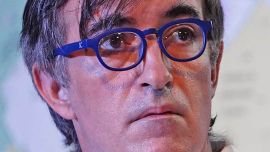









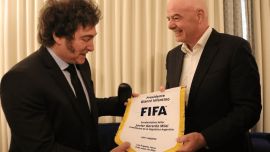
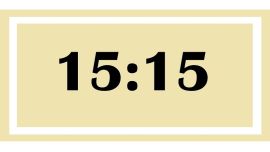







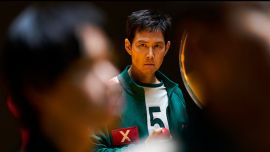
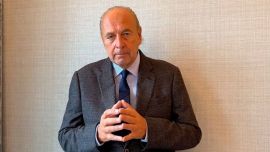
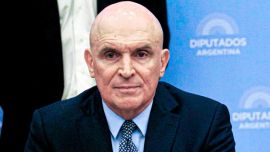
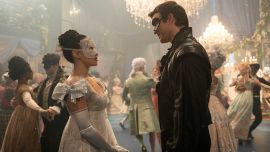

Comments